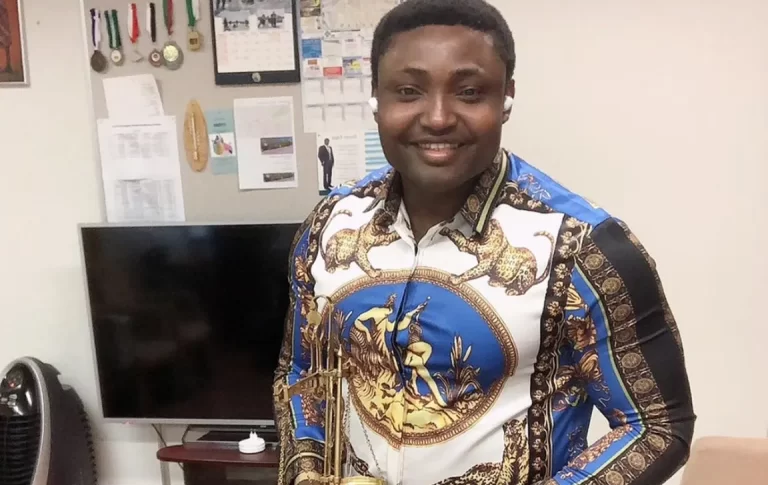News
DHQ moves to stop Lukarawa’s recruitment drive

The Defence Headquarters has said the new terrorist group, Lukarawa, has begun a recruitment process to bolster its fighting capabilities.
It, however, said the military was aware of the group’s recruitment activities and working closely with other security agencies and the state government to halt the recruitment efforts.
The DHQ had, last Thursday, confirmed the emergence of a new terrorist group known as ‘Lukarawa’ in the northern region, with operations in Sokoto and Kebbi states.
The Director of Media Operations, Maj Gen Edward Buba, said the terrorists began incursion into the northern parts of Sokoto and Kebbi states from the Niger Republic and Mali axis, particularly after the coup in the Niger Republic.
He blamed residents of the region for accommodating the terrorists and failing to report their movements to the military and other security agencies.
On Friday, the new terror group attacked Mera town in the Augie Local Government Area of Kebbi State while residents were preparing for Jumaat prayers, killing at least 15 people and carting away at least 100 cows.
Speaking in an interview with our correspondent on Tuesday, Buba said the terrorists were using sermons and welfare packages to entice the youth.
He added that the terror group was also using social media to drive its recruitment efforts.
Buba said, “The group is employing social media platforms, showcasing sermons and enticing recruits with welfare packages.
“Nevertheless, we know of these plans and are working together with other security forces and the state government to thwart the efforts of the terrorist.”
A former Director of the Department of State Services, Mike Ejiofor, argued that although the group had been in existence since 2018, the country’s intelligence agencies had been monitoring their activities.
He said the sect’s members were too few to constitute a serious threat to national security.
He said, “It must be clear that this group has been there since 2018. It’s not a new group. They have been there since 2018. They were brought in there by the community leader who wanted to help them fight. This group was formed by Nassala in Niger Republic. So when he died, the Nigerien government could not control them.
“So they were invited to assist them in Sokoto. They were there, but eventually, the Sokoto State government used their non-kinetic approach to make them leave that place through negotiation.
“Some of them remained, and they’ve been operating on a very new team. So it’s not as if it’s a new terrorist group that has just emerged.
“So they’ve been there, and the intelligence agencies have been following their activities. I can’t tell you the exact number now, but they are not men that can pose a major threat to our national security.
“But that is not to say that we will leave them. The intelligence circle is also following their activities.”
Ejiofor stated that security agencies must intensify their intelligence efforts and communities must support these agencies to help eliminate the terror group.
He said, “Yes, they might be trying to recruit some people. The intelligence services are monitoring their activities with a view to putting them in check so that they don’t take root within that area.
“There’s no cause for alarm, but you cannot at the same time underplay any security threat in the country. There’s much we can do through communal support.”
He blamed the community for not reporting the activities of the bandits.
“If they report, they’ll be in trouble. If they fail to report, they’ll be in trouble. So the best thing is to support the government.
“You know, they collect taxes from these people and make them raise funds and all these things. So they are in a precarious position.
“I think the best thing for us to do is to intensify intelligence efforts and operational efforts from the security agencies to make sure they are put in check before they spread,” he said.
A security expert, Timothy Avele, said, “From open sources we gathered the group has been in existence for the past six years.
“In fact, in some Kebbi communities, they’re collecting levies and handling judicial cases and even preventing emirs from carrying out their lawful duties.
“So it means they have been existing but have not been known to the press and general public.
“If this is confirmed to be true, it, therefore, means the security agencies, especially the DSS and police intelligence department failed in their primary responsibility of gathering and analysing strategic intelligence.”
He added that with the hardship in the country, it would be difficult to stop the group’s recruitment drive.
“However, if their sources of funds are targeted and blocked and their top leadership/sponsors (both local and foreign) eliminated, including carrying out specific cyber operations, only then it could be stopped,” he said.”
News
House Approves President Tinubu’s N1.767trn Loan Request

News
Reps Direct IGP, DG DSS To Deploy Personnel To Etsako LGA Over Worsening Insecurity

News
BREAKING: Finland Police Nab Simon Ekpa, 4 Others Over Terror-related Activities

The Central Criminal Police in Finland has announced the arrest of Finnish-Nigerian separatist agitator, Simon Ekpa and four other individuals over terror-related activities.
According to a tabloid in Finland, Ekpa, the self-declared Prime Minister of Biafra Republic Government In-Exile, was remanded in custody by the district court of Päijät-Häme on suspicion of public incitement to commit a crime with terrorist intent.
In a Thursday statement published on its website, the Central Criminal Police in Finland said it arrested five persons on suspicion of terrorist crimes.
The police said the main suspect was arrested “on suspicion of public incitement to commit a crime with terrorist intent”, while four others were arrested “for financing a terrorist crime”.
The police added: “Claims will be heard in Päijät-Häme district court today, November 21.”
The statement reads, “The detention demands are related to the preliminary investigation, in which a Finnish citizen of Nigerian background, born in the 1980s, is suspected of public incitement to commit a crime with terrorist intent.
“The police suspect that the man has promoted his efforts from Finland by means that have led to violence against civilians and authorities as well as other crimes in the region of South-Eastern Nigeria.”
The statement quoted the head of the investigation, Crime Commissioner Otto Hiltunen from the Central Crime Police as saying that “the man has carried out this activity, among other things, on his social media channels”.
“Four other persons are suspected of financing the aforementioned activity. All five suspects of the crime have been arrested during the beginning of the week.
“International cooperation has been carried out during the preliminary investigation,” the statement added.
-

 News14 hours ago
News14 hours agoGovernment to embark on sale of military assets, drones, others
-

 News13 hours ago
News13 hours agoEFCC arrests 35 suspected internet fraudsters in Abia
-

 News14 hours ago
News14 hours agoFake miracle preachers in trouble as govt moves to arrest them
-

 News13 hours ago
News13 hours agoOkpebholo sacks Governing Councils of AAU, others
-

 News13 hours ago
News13 hours agoACF pushes for northern presidential candidate in 2027
-

 News19 hours ago
News19 hours agoReps Pass For Second Reading Bill Seeking Adequate Funding Of Mineral Exploration Through PPP
-

 News5 hours ago
News5 hours agoPDP Senate Caucus insists Ighodalo’s mandate was stolen
-

 News14 hours ago
News14 hours agoLakurawa terrorists launch deadly attacks in Niger Republic







